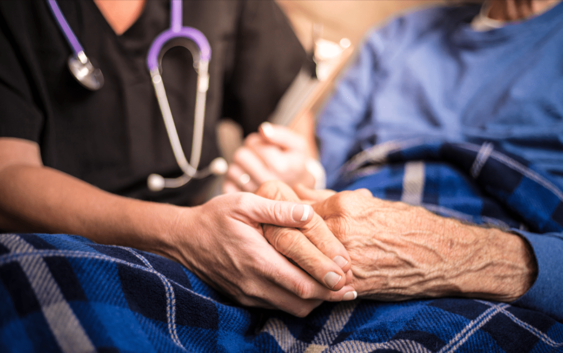- Digital Vitamin Hub: Discovering Reliable Online Platforms for B12 Injections in the UK
- Dental Tourism Exploring Affordable Dental Care Abroad
- Discovering Hope in Hospice Care, Los Angeles
- The Pain That Is Sustained After An Auto Accident Is Often Delayed
- CONSCIOUSLY DISCOVERING CARPAL TUNNEL SYNDROME
Discovering Hope in Hospice Care, Los Angeles

Welcome to the City of Angels, where compassion and care flourish amidst the bustling energy. In a city known for its glitz and glamour, there is a hidden gem that shines with a different kind of radiance – hospice care in Los Angeles.
While the term “hospice” may evoke feelings of sadness or uncertainty, it is important to remember that this specialized form of healthcare offers hope, comfort, and support during one of life’s most challenging journeys. Whether you are facing a terminal illness yourself or seeking guidance for a loved one, discovering what hospice care in Los Angeles has to offer can be an enlightening experience filled with compassion and understanding.
In this blog post, we will explore the dedicated team behind hospice care in Los Angeles, shed light on what you can expect when entering such compassionate care, and provide tips on how to cope with grief along the way. So let’s embark on this journey together as we uncover the remarkable world of hospice care Los Angeles care right here in our beloved City of Angels!
The hospice care team
Behind every successful hospice care experience in Los Angeles, there is a team of compassionate and skilled professionals dedicated to providing the highest level of care. This multidisciplinary team consists of doctors, nurses, social workers, chaplains, volunteers, and other specialists who work together to ensure that patients and their families receive holistic support.
Doctors play a crucial role in hospice care by managing pain and symptoms while focusing on enhancing the patient’s quality of life. They collaborate closely with nurses who provide hands-on medical care, administering medications and assisting with daily activities. Nurses also act as educators for both patients and families, guiding them through the complexities of end-of-life care.
Social workers offer emotional support not only to patients but also to their loved ones during this challenging time. They help navigate difficult decisions about treatment options or advance directives while connecting families with necessary community resources. Chaplains provide spiritual guidance and comfort based on individual beliefs or faith traditions.
Volunteers serve as an invaluable presence throughout the hospice journey. They offer companionship, engage in meaningful conversations or activities with patients, run errands for families in need, or simply lend a listening ear when it is most needed.
What to expect when entering hospice care
Entering hospice care can be an overwhelming experience, both for the patient and their loved ones. It is important to have a clear understanding of what to expect during this stage of life, as it can help alleviate some of the anxiety and fear that may arise.
First and foremost, it’s crucial to understand that hospice care focuses on providing comfort and support rather than curative treatment. The goal is to enhance the quality of life for individuals with a terminal illness by managing pain and symptoms effectively. This often involves a multidisciplinary team consisting of doctors, nurses, social workers, counselors, and volunteers who work together to address various aspects of physical, emotional, and spiritual needs.
When entering hospice care in Los Angeles or any other location, expect personalized attention from these professionals who are trained in end-of-life care. They will take the time to assess your specific needs and develop a comprehensive plan tailored to you or your loved one’s wishes. This may include medication management, regular check-ins from nurses or caregivers at home or at a dedicated facility if required.
Additionally, hospice care provides emotional support not only for patients but also for their families. Grief counseling services can be offered throughout this journey to help cope with the range of emotions that arise during this time. Social workers are available to assist with practical matters such as legal documents or financial concerns.
How to cope with grief
Coping with grief is an essential part of the hospice care journey. While it may seem overwhelming at times, there are strategies and resources available to help you navigate this challenging process.
Remember that grief is a personal experience, and everyone copes with it differently. Allow yourself to feel whatever emotions arise without judgment or expectation. Give yourself permission to grieve in your own way and at your own pace.
It can also be helpful to seek support from others who have gone through similar experiences. Joining a bereavement support group or reaching out to friends and family for emotional support can provide comfort during this difficult time.
Additionally, consider engaging in self-care activities that promote healing and well-being. This could include physical exercise, practicing mindfulness or meditation, journaling about your feelings, or seeking professional counseling if needed.
